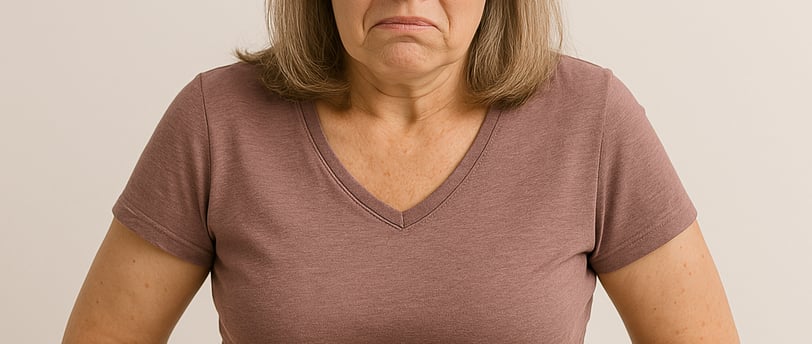Menopause Bloating Relief: Tips to Beat the Belly Bloat Naturally
Feeling bloated during menopause? You’re not alone! Hormonal changes in midlife can trigger uncomfortable belly bloat, leaving many women frustrated and searching for relief. In this post, we’ll explore what causes menopause bloating and share simple, natural remedies to help you feel better fast. From anti-bloating foods and hydration tips to movement, stress management, and lifestyle tweaks — discover easy, practical ways to beat the bloat and feel more comfortable in your body during this transitional time.


Bloating is one of those sneaky, frustrating menopause symptoms that nobody really warns you about. Just when you think you’re past PMS and hormonal rollercoasters, here comes menopause with its own set of surprises — including belly bloat that can leave you feeling uncomfortable, sluggish, and downright fed up with your favorite jeans not fitting.
The good news? Menopause bloating is common, and there are simple, natural ways to get relief.
Why Does Menopause Cause Bloating?
During perimenopause and menopause, fluctuating hormones — especially estrogen and progesterone — can affect how your body retains water and how efficiently your digestive system works. These changes can lead to:
Water retention
Slower digestion
Increased gas production
Constipation
Food sensitivities
Many women also find that stress, poor sleep, and lifestyle habits that didn’t bother them in their 30s suddenly trigger uncomfortable bloating in their 50s.
Signs of Menopause Bloating
→ Tightness or pressure in the belly
→ Clothes feeling snug around your waist
→ Gassiness or frequent burping
→ Swelling that comes and goes
→ Sluggish digestion or constipation
Sound familiar? Let’s talk solutions.
Natural Tips for Menopause Bloating Relief
1. Hydrate — But Smartly
It may seem counterintuitive, but drinking plenty of water helps flush out excess sodium and reduces water retention. Aim for 8+ cups a day.
Bonus: Add a squeeze of lemon or cucumber for extra anti-bloating benefits.
2. Eat Magnesium-Rich Foods
Magnesium supports healthy digestion and helps reduce water retention. Add more of these foods to your meals:
Leafy greens
Pumpkin seeds
Almonds
Avocados
Bananas
Dark chocolate (in moderation!)
3. Move Your Body Daily
Gentle movement helps stimulate digestion and reduce bloating. Even a 20-minute walk after meals can work wonders. Yoga poses like twists or child’s pose are especially soothing for belly bloat.
4. Limit Gas-Producing Foods (Temporarily)
While beans, broccoli, cabbage, and onions are healthy, they can increase gas and bloating in sensitive digestive systems. Try cutting back temporarily and reintroducing slowly to see how your body responds.
5. Watch Salt & Sugar Intake
High-sodium processed foods and sugary treats can both contribute to water retention and inflammation. Stick to whole, unprocessed foods when possible.
6. Try Herbal Support
Herbs like peppermint, fennel, and ginger have been used for centuries to ease digestion and reduce bloating. Sip them as teas or take them as supplements (with your doctor’s approval).
7. Manage Stress
Stress triggers cortisol, which can lead to digestive issues and bloating. Deep breathing, meditation, or simply sitting quietly for 5-10 minutes a day can help calm your system.
8. Keep a Food & Symptom Journal
Track what you eat and how you feel. Over time, you may notice patterns — like dairy, gluten, or artificial sweeteners contributing to bloating.
When to See a Doctor
If your bloating is severe, constant, painful, or accompanied by weight loss, it’s important to check in with your healthcare provider to rule out other conditions like ovarian cysts, fibroids, or gastrointestinal issues.
Final Thoughts: Be Gentle with Yourself
Menopause bloating can feel discouraging, but it doesn’t have to control your life. Small daily habits — like staying hydrated, eating magnesium-rich foods, moving your body, and managing stress — really do add up over time.
Remember, this is a season of transition. Your body is adjusting, and with a little patience (and self-care), you’ll find what works best for you.
Bonus Tip: Love stretchy waistbands. Seriously. Comfort is queen in midlife.
